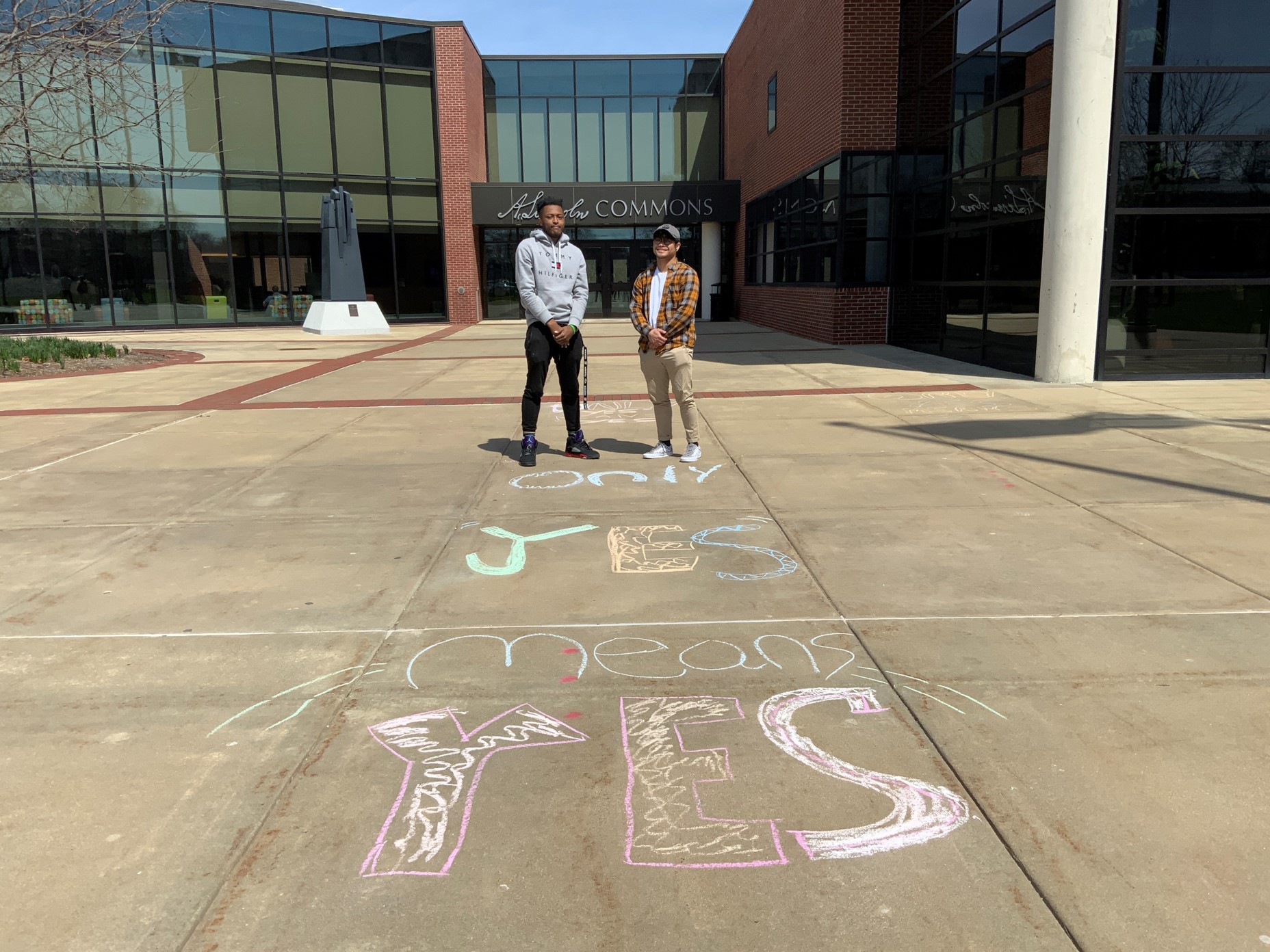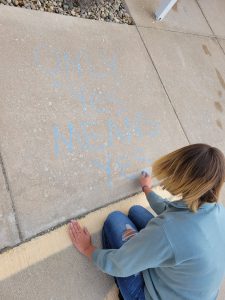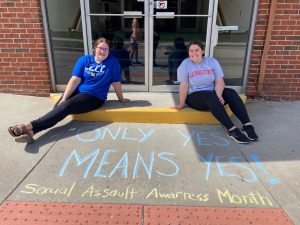Sexual Assault Awareness Month educates communities and individuals about sexual assault and the actions they can take to prevent it.
During the month we have focused on learning about sexual consent, knowing how to intervene when we see something happening and pledging to take action to rock future sexual assault statistics.
This week we focus on the campus and community resources available to help survivors. If you are a survivor or someone you know is a survivor of sexual assault, know there are resources available to help you.
Also remember, we have been invited to join University of Illinois Springfield in their Take Back the Night event on April 29 at 7 p.m. The march will start at the Union on the UIS campus. More details will be announced on Wednesday.
Campus resources
Talkspace
LLCC has partnered with Talkspace, an online therapy service. All LLCC students are provided with two free monthly 30-minute live (synchronous) video sessions and free unlimited text, voice and video therapy messaging with a Talkspace therapist. Students have the ability to choose therapists based on all sorts of needs/interests including race/ethnicity, gender, sexual orientation, veteran status, religious preference, language preference, etc. Additionally, Talkspace uses a secure and confidential HIPAA and FERPA compliant app. Talkspace also has lots of resources about common diagnoses, coping mechanisms and exercises such as “Overcoming Worry.” You can learn more by going to Talkspace. To get started, students can talk with their student success coach or look for info in their LLCC email.
Confidential advisors
LLCC has confidential advisors who have special training to confidentially assist students experiencing sexual harassment, intimate partner/domestic violence, sexual assault and stalking.
Confidential Advisor Phone Line (only answered by confidential advisors): 217-786-2590
Claire Heffron-McKinney, Student Success Coach
Claire.Heffron-Mckinney@llcc.edu
217-786-2590
Melissa Franzen, Student Success Coach
Melissa.Franzen@llcc.edu
217-786-2228
Office of compliance and prevention
The LLCC Office of Compliance and Prevention can connect students who are survivors of sexual assault with resources available at the college, within the community and nationally. Students may contact Nikki Baker, compliance and prevention coordinator at 217-786-3426 or stop by Room 0006 in Menard Hall – inside the student life office.
Local resources
Prairie Center Against Sexual Assault (PCASA)
The Prairie Center Against Sexual Assault provides free services for individuals and families affected by sexual violence regardless of race, gender, language, ability, sexual orientation or religion. Services provided include: crisis intervention, medical and legal advocacy, counseling for survivors of all ages (adults and children), prevention education programs and advice on what to do if you are assaulted.
A 24-hour hotline is maintained by trained staff and volunteers of PCASA. Get information and help dealing with recent or past incidents of sexual assault, child sexual abuse, incest, sexual exploitation, sexual harassment, victim’s rights, emotional reactions and the legal system. Call the hotline for crisis situations, information about services and questions about sexual assault/abuse. Hotline number: 217-753-8081.
PCASA locations and phone numbers
Springfield Location
3 W. Old State Capitol Plaza
Springfield, IL 62701
217-744-2560
Jacksonville Location
2001 W. Lafayette
Jacksonville, IL 62650
217-243-7330
Sojourn Shelter and Services
Sojourn Shelter and Services focuses on providing services for those affected by domestic violence. Services provided include emergency shelters, individual counseling, educational group services, children’s programs, court advocacy and on-call advocates. Sojourn Shelter and Services also provides a wide range of educational information on avoiding unhealthy relationships, dating violence, domestic violence and how to be a friend to a victim of intimate partner abuse. Additionally, Sojourn provides information and resources for making a safety plan. All services are free and confidential.
Sojourn Shelter and Services Location & Phone Numbers
1800 Westchester Blvd.
Springfield, IL 62704
Phone: 217-726-5200
TTY: 217-726-7385
24-hour hotline number: 217-726-5200, or toll-free at 1-866-HELP4DV (435-7438)
Additional resources and information
LLCC’s website includes additional sexual violence resources.
Questions
If you have any questions, comments, or need to report an incident related to sexual assault or harassments, please contact the Nikki Baker, compliance and prevention coordinator, at Nikki.Baker@llcc.edu.



